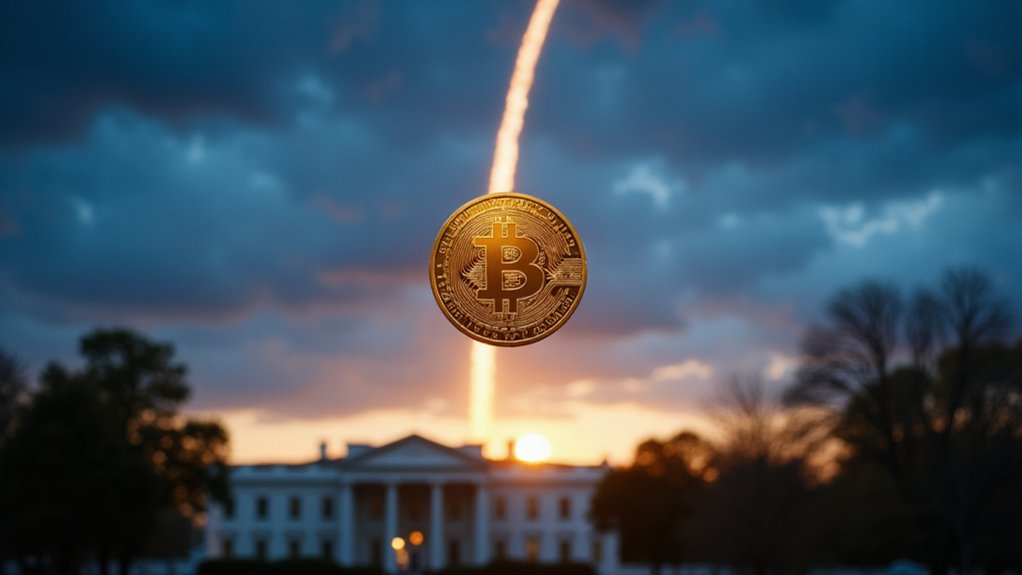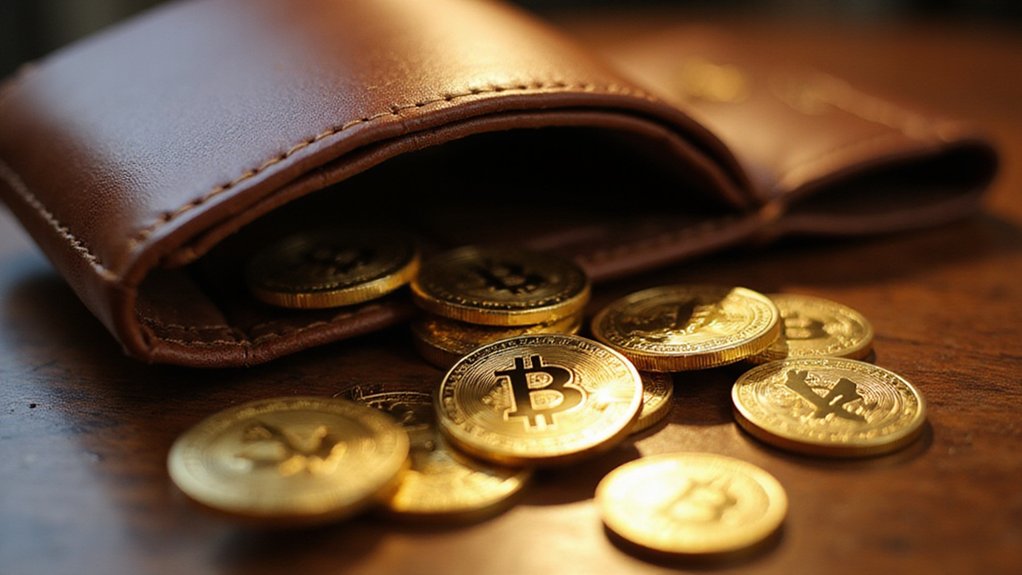The convergence of traditional equity markets and cryptocurrency infrastructure has birthed an intriguing hybrid: tokenized stocks that allow investors to trade fractional shares of Amazon through blockchain platforms. AMZNX and AMZNx represent this marriage of old-guard finance and digital innovation, where regulated custodians hold actual Amazon shares to collateralize tokens issued on Solana and Ethereum networks.
The marriage of traditional equity markets and cryptocurrency infrastructure creates a fascinating hybrid through blockchain-collateralized tokenized stocks.
Platforms like Phemex and Kraken have democratized access to Amazon equity, enabling global investors to purchase fractions with minimal capital—as little as $1 opens the door to Bezos’s empire. This accessibility comes with a peculiar twist: 24/7 trading availability that transforms Amazon stock into a round-the-clock financial instrument, divorced from traditional market hours and their quaint limitations.
The technical infrastructure appears robust enough. Blockchain technology provides the secure, transparent foundation while custodial backing guarantees tokens mirror Amazon’s actual stock price. Cryptocurrency integration allows Bitcoin holders to seamlessly shift into equity exposure, creating portfolio diversification opportunities that would have seemed fantastical a decade ago. These tokenized stocks also present DeFi potential through possible integration with decentralized finance protocols.
However, this innovation carries a rather significant caveat that deserves emphasis: the potential for extraordinary volatility. Trading Amazon stocks through crypto infrastructure exposes investors to the notorious price swings endemic to cryptocurrency markets. While traditional Amazon shares experience normal equity volatility, tokenized versions can encounter the crypto market’s characteristic turbulence—potentially magnifying price movements by hundreds of percentage points. Some institutional investors utilize arbitrage strategies to exploit price differences between tokenized versions and traditional shares across different platforms.
The regulatory landscape adds another layer of complexity. Kraken restricts xStock purchases to retail clients in specific countries, while both crypto and traditional stock market regulations continue evolving. Global economic conditions influence demand patterns, and increasing institutional involvement could either stabilize or amplify these dynamics.
The democratization benefits remain compelling: fractional ownership reduces entry barriers, promotes financial inclusion, and provides global accessibility that traditional brokerages struggle to match. Amazon’s impressive market capitalization of $2.38T underscores the substantial exposure these tokenized instruments provide to retail investors.
Yet investors must reconcile these advantages with the reality that tokenized stocks inhabit a volatile intersection where traditional equity fundamentals meet cryptocurrency’s unpredictable nature.
This hybrid represents both financial innovation and inherent risk—a fascinating experiment in market evolution that demands careful consideration of its unique volatility profile before participation.









